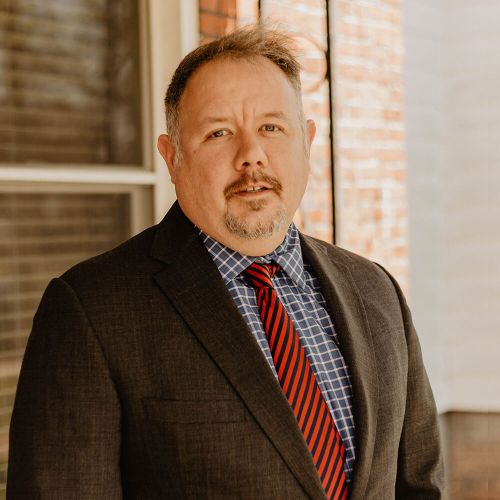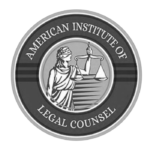Jury Trial
It has been an interesting and certainly non-traditional journey for me to get to where I am now. Many who wish to become lawyers do so by going to high school, then to college, and then to law school. Typically, from my understanding, this is done in somewhat quick succession and often without delay. Not me, at least not without delay. I went to high school, then to undergrad in what is a more traditional succession. I left undergrad, degree nearly completed, as part of a work-study that was supposed to last one semester yet ended up being a two year journey beginning in Baltimore and ending in Chicago. I then returned to Maryland, not having completed my undergrad degree, and eventually began working in the law. I had no clue what I was really doing, and learned everything on the job. That was a positive experience, and quickly I went from a paper pusher to someone in an office with some responsibility. Then, realizing that I was being grossly underpaid, changed jobs to a larger firm for more money and less responsibility. At this point in time I began to complete my undergraduate degree. I transferred from the school I started with, and over a few years completed a bachelor’s degree. In this time I switched jobs again to a solo attorney for whom I would use a lot of my marketing background and sales experience to build a small firm into a high volume firm over the course of a few years. Before beginning law school at the University of Baltimore School of Law in August 2011 I got married and became a father of one(not particularly in that order, but this story is about my non-traditional style, right?). In the middle of my second semester I became a father again. I really hate when people use that verbage, but it seems to be what people say when something happens again. I had never ceased being a father, but I had another child.
My law school experience, like most other experiences in my life, have been a little different that what I observed everyone around me to be having. When I first arrived at new student orientation, I quickly realized that I was the only student that I spoke to that really knew what he or she wanted to do after school, moreover the only student who seemed to know why he/she was even attending law school. I had a plan, a plan B, and perhaps even a plan C depending upon how the 4 years of evening law school would develop. As with most plans, this changed somewhat, as the dynamic of my life certainly changed. As a night student I was in Baltimore to late hours 4 nights out of the week. In the first semester I was not getting home to Cecil County until nearly 11pm, waking up around 5:30 or 6am and starting all over again. When my son was born, there was no sleep really for several months. This was incredibly taxing on myself and my family–both physically, mentally and emotionally. In the fall of my second year I enrolled in a mix of courses evening and day classes, allowing me to be home 3 week nights and at school only 2. At this point I also switched my status to full-time day student so that I could take additional credits exceeding the max of 12. By the fall of the third year, I was down to my last 2 semesters. Overloading and taking full summer course loads allowed me to accelerate the 4 year degree plan into 3 years. It look a lot of maneuvering to be able to finish in the spring, and not have to take summer classes in my final year. I wanted to avoid taking courses when others were taking the bar. I didn’t want to be preparing for the bar when the July bar takers were being sworn in and beginning their careers. Much of these maneuvers involved a lot of self sacrifice. When I began law school I had a well paying full time job. Throughout this process I cut back hours, and released a lot of the responsibility that I had at the firm I was working for. Perhaps I was a positive catalyst at my old job, because as I became less involved the course of the firm took a different direction, and money became sparse. I left this job in November, mainly due to financial instability and my employer’s inability to pay me consistently. I feel that I a lot of what has happened to this point is the result of my desire to accelerate my degree program and become a lawyer a year earlier.
Nothing in life is free.
The fall of this final semester, however, awarded me a brilliant and fantastic opportunity that I would not have been able to undertake had I stuck to the night-only 4 year plan. Many schools thought out the country and the States that they’re in have programs that allow third year students with certain qualifications to practice in the non-profit areas in the local communities. Depending upon the practice areas, this may include low-income family law clinics, social security disability, immigration, or even criminal law though the State’s Attorney and Public Defender offices in the State. I was fortunate enough to be selected (it’s a lottery, so luck as much as anything else) to participate in the criminal law clinic, and under part of Maryland’s rule for admission became a lawyer within the confines of the Cecil County Public Defender’s office from August 2013 through January 2014. Due to scheduling issues with school that semester, most specifically the classroom component to this clinical experience, most of the work I was involved in was in the District Court. It was great experience, none the less, and I was able to work with hundreds of clients and hundreds of cases. Some I managed to have dropped completely, or get really good offers to plea for the clients so that they would be able to move past the infraction that I was representing them for and continue their lives with an opportunity for a clean criminal record.
It was only until December that I was able to do any real work in the Circuit Court. Many of the district court cases resolved in what is referred to as a “prayer for jury trial.” In Maryland, for those unfamiliar, there are two trial courts. The District Court is mainly the misdemeanor trial court, with no juries. There are some special felonies that can be tried in the District Court as well, but most of those are Circuit Court Cases. Also, any charges where the maximum penalty exceeds 90 days incarceration give the defendant the automatic right to request that their case be moved from the District Court to the Circuit Court, for a jury trial. Most of the cases taking this course do not actually result in filling the jury box with 12 citizens, but the mechanism is to request such a right. Often times this strategy is employed to get what is a big fish in a small pond into a larger pond, that is to say get a case into a court where they handle much more serious matters. Usually the plea arrangements are more favorable in the Circuit Court. Sometimes the strategy is one in which to buy time. Nearing the holidays defendants who know that they are likely to do jail time will pray a jury trial just to stay out of detention until after the holidays. Homeless defendants often will take pleas around these colder months for the purposes of being indoors when the adverse weather conditions may cause permanent injury or even death. In many cases defendant is charged with some violation involving the status of their driving privileges. For them, the delay offered in the jury trial scheduling will allow them to have their license reinstated or at least have taken substantial steps in the process before their trial date.
Sometimes, though, these cases go to trial.
When I first began this clinical experience, one of the “goals” expressed by the professors overseeing the clinic to the supervisor of the public defender’s office was that I would try 5 contested cases throughout the semester. My supervisor balked at this notion, doubting that in the time frame I was going to be there that the entire office was unlikely to try more than 5 contested cases, throughout the entire office! Finally, though, in January 2014 I had my hands on a case that the facts were disputed and the State wasn’t making an offer that my client wanted to take. It was finally, after all of this, time to fill the box and get down to business. Unlike many lawyers, in my observation, I want a trial. I want to fill the box, I want to do the work. Probably not limited to lawyers, but most in my experience are looking to go the path of least resistance. Get their money for a good plea deal and move on. More time handling a case means less money overall, or less time spent handling another case. Plus, I guess some people are scared to try cases. I’m wired differently, I suppose. I didn’t go to law school to not be a lawyer. I had a good job, a high paying job. I was making more money than most first year associates in my job. I could have gone on doing that, making more and more money each year, not being a lawyer. However, I would have been confined to the office, and not given the opportunity to try cases.
This is what I want to do.
It’s tough to try a case. Not so much the trial aspect of trying the case, but getting a case actually to go to trial. I’ve often thought, in criminal law, that any case that is worth trying is bad enough that the state should be dropping the case. Throughout the semester, at least in the district court, I prepared to try a lot of cases. I was ready to go. Then, when showing up to court the day of trial, something went wrong on the State’s side. They looked at their file, their witness didn’t show up, or they made a good enough deal that the client wanted to take it and move on. Every case I thought I was going to get to try, went away.
I’m not a glutton for pain or punishment. I advised each client of the benefits and downfalls of any plea deal offered. I want what is in the best interest of the client, and will continue to do so once I become a lawyer. The client rules the day. Fortunately for me I had a guy who didn’t want any offer, even a really good offer up to the point where we were about to select jurors.
I got my trial.
It went almost exactly as I thought it would. I had prepared for some time for this case, knew there was a likelihood that a jury would find my guy guilty. However, there were a lot of inaccuracies and discrepancies in the accusing victim’s statement and story that I felt the case was worth trying. I was incredibly happy with how the trial went. I felt that I highlighted all of the inaccuracies/discrepancies that I wanted to bring the jury’s attention to. I personally did not feel that there was enough evidence to convict my client.
The jury disagreed with me.
Such is life. My guy was found guilty. I didn’t know how I’d feel if I got a guilty verdict. I didn’t know if it would be discouraging to me, make me shy away from trials, or whatever. None of this has happened. Unfortunately my time as a student attorney is over. My carriage turned into a pumpkin last friday afternoon, and I am back to civilian life…for now. One semester of law school to go. Graduation in May, bar exam in July, and assuming all goes as planned, admission to practice in December 2014. Then I will have far less restrictions in my effort to try more cases.
No doubt, one day, I will become a little more jaded, a little less enamored with the idea of going to trial. I think the goal for me needs to avoid this and delay these feelings at all cost. I need to be conscious of the fact that the practice of law is referred to as the “practice” of law for a reason. Looking back on the trial, there may have been some minor things that I would have done a little differently. Facts or occurrences that I may have emphasized a little more or a little less. None of which I feel would have turned the case, but I would be foolish to think that I couldn’t have done better, made the jury deliberate longer. My client was happy with the trial, not necessarily the outcome, but he knows that we put it all on the table. I had prepped with the client about the case several times. He knew what I planned to do, agreed with it, and felt that it was done the way we planned. He even thanked me again the next day for the effort when he had to show back up at the courthouse for a pre-sentencing investigation.
It is possible that in sentencing this guy is offered probation before judgment at the culmination of any incarceration given by the court. I feel good about this. If the guy didn’t do it, then he has a chance to earn a clean record after he does his time.
I’m hungry to practice. Hungry to be in the mix. I have another trial advocacy course in the spring, and lobbied with the school to allow me to extend my Rule 16 placement.
My time will come.

Written By Jobeth Bowers
Maryland Attorney Jobeth Bowers is the founder of Bowers Law and a graduate of the University of Baltimore School of Law
"*" indicates required fields







